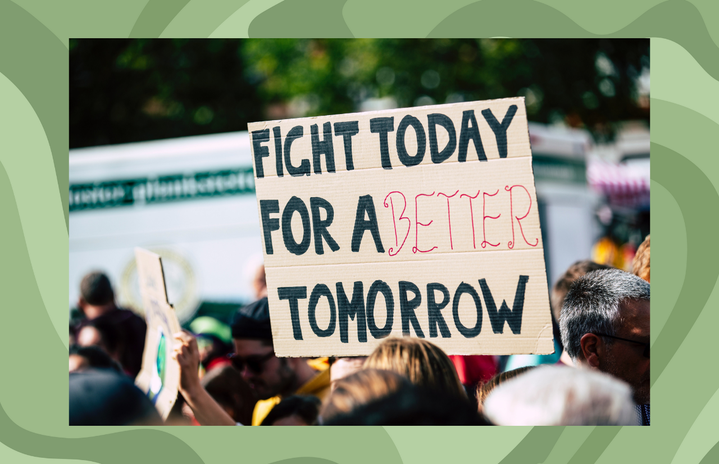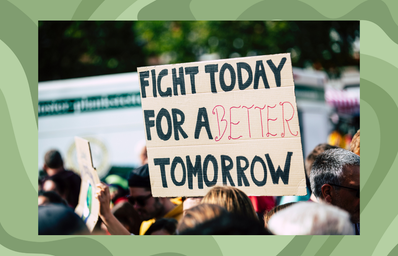The pandemic has shifted many aspects of university life, from online classes to college friendships, and student activism on college campuses is no exception. Over the last year and a half, we’ve adjusted and adapted to the “new normal” of remote organization, cried and complained as injustices around the world have been exposed, and then finally emerged re-energized (sort of).
Despite the pandemic, there have been other happenings over the last year that have caused uproar and gained international attention as the world’s focus shifted. Perhaps with us being locked at home we’ve become hyper-aware of our surroundings. Or perhaps we owe it to our increased use of our phones and social media; a WARC study as recent as April 2021 stated that COVID-19 has increased our digital consumption by 30%, leading us to develop new, lasting habits. With this increased digital intake of the world around us, we have been able to highlight the injustices happening around the globe and amplify the voices of those who may have otherwise been silenced before. From the long-overdue conversation surrounding the Black Lives Matter movement after the killing of George Floyd to the wealth inequality highlighted by the pandemic and its effect on frontline workers, we’ve been having important conversations now that we’re so interconnected with one another around the globe.
It’s almost ironic to find that, at a time when many of us have found ourselves lost, burned out, or exhausted due to a global pandemic, our activism has been ignited and our spirits haven’t dampened. But, with students back in school for another semester, what will that activism look like with classes back in session? Will students still have the energy and bandwidth to continue making change? Will raising awareness still be a priority? Or will life become too fast-paced for activism as things return to normal?
I spoke to two college-aged activists to find out how they’re approaching activism on campus this year, and their tips for other college students who want to make a difference.
Balance is key
Cassandra, 21, a rising senior based in Toronto, Canada, founded a women’s health activism page on Instagram in the thick of the pandemic. The first post on Her Uterus went live in December 2020. In less than a year, she has racked up a following of over 10,500 on Instagram, gained over seven million views on her Reels, and launched a website and blog. Cassandra, who has endometriosis, pelvic floor disorder, vaginismus, interstitial cystitis and pelvic pain, started the page as a personal diary and outlet for her feelings. However, having garnered such a large and dedicated following, it’s fair to wonder how she intends to continue producing content — if at all during the upcoming fall semester.
“I know it won’t be easy to balance it all, especially with working my part-time job, but this activism work is a top priority for me, so I know it will get done,” she tells Her Campus. “I’ll have to re-evaluate my workflow at the start of the semester and throughout the months, but I know I can do it. The main thing is aiming to keep this as something I love and that makes me happy, not ‘work.’ I love connecting with people and hearing their stories. I love writing and answering questions people have. I love filming videos and editing them. I don’t want to lose that passion, so it’s all about balance.”
For Cassandra, balance is the hardest part. Trying to find that middle ground between taking up opportunities and enjoying your school life while still carving out time for rest and self-care is no easy feat. But actively working towards achieving that healthy lifestyle is the first step in the right direction.
Teamwork makes the dream work
Asmaa, 22, a Master’s student at Ryerson University, finds her strength in her teammates and colleagues. As one of the co-founders and co-chairs of Ryerson Journalists of Colour, a student group dedicated to creating space for journalists of color at her university, Asmaa has worked tirelessly to create a safe and welcoming environment. Stepping into the role of co-chair in the thick of a pandemic over Zoom wasn’t easy. Still, Asmaa has put on a brave face.
“It was definitely a challenge! Among burnout, school stress and pandemic stress, it proved to be a bit difficult but it needed to be done,” she tells Her Campus. “I strongly believe in the power of teams as well, and everything about RJOC is a team effort. That’s what made it doable.”
Another positive of being so interconnected is being in a position to ask for help. Many people are in the same boat as you; they’re either in their first semester back on campus after what seems like a lifetime, or they’re still navigating the online world. Either way, they understand the obstacles you’re dealing with as you try to make your voice heard. So reach out, ask for help and rely on your teammates to help you weather through the tough times.
Find inspiration & confidence
“The fall semester is my last academic semester before I graduate so I’m trying to enjoy every minute, all while balancing the rest of my life, which includes activism work,” Cassandra says. “Thankfully I’m pretty good at time management, so I think as long as I stick to my schedule, I should be good. I’m excited to connect with my peers again and hopefully engage in meaningful conversations about activism and creating change. School inspires me!”
Meanwhile, Asmaa just graduated this past winter with her Bachelor’s degree. This upcoming fall, she’ll begin the journey to attain her Master’s degree. But what effect might that have on her activism? Will she still have the time and energy to dedicate to leading a student group and focusing on social justice issues? While many might say no if posed with a question like that, Asmaa has a different mindset.
“I feel a lot more confident, weirdly enough,” she says. “I think now that I’m gaining some more academic and work experience, and more exposure to different kinds of people, I’m confident that the way I raise awareness will go beyond just me.”
Getting involved is a great way to help your community while also building yourself up. It’s an opportunity to step back and look at the bigger picture as you connect on a deeper level with the communities you represent.
activists’ Advice for college students
We all know burnout a little too well, and that’s not a good thing by any means. Take it from someone who has managed to balance her personal life, a full-time summer job and her organically growing activism page: You’re allowed to rest. Cassandra follows a posting schedule that works best for her mental health while also allowing her to enjoy other aspects of her life. She’s also set boundaries when it comes to answering DMs and checking her phone during post-work hours.
“Activism is powerful, but it can’t be impactful if your own mental health isn’t in check,” she says. “Authenticity and activism go hand in hand, and if you’re burnt out, you can’t be authentic. So take care of yourself!”
For any college students grappling with the idea of how to partake in any kind of activism this fall, I hope this provides a little clarity. Give yourself the time and space to figure out what works best for you.
Studies Referenced:
Clapp, R. (2021). COVID-19 causes digital consumption to rise by over 30%, forming new and lasting consumer habits. WARC.


